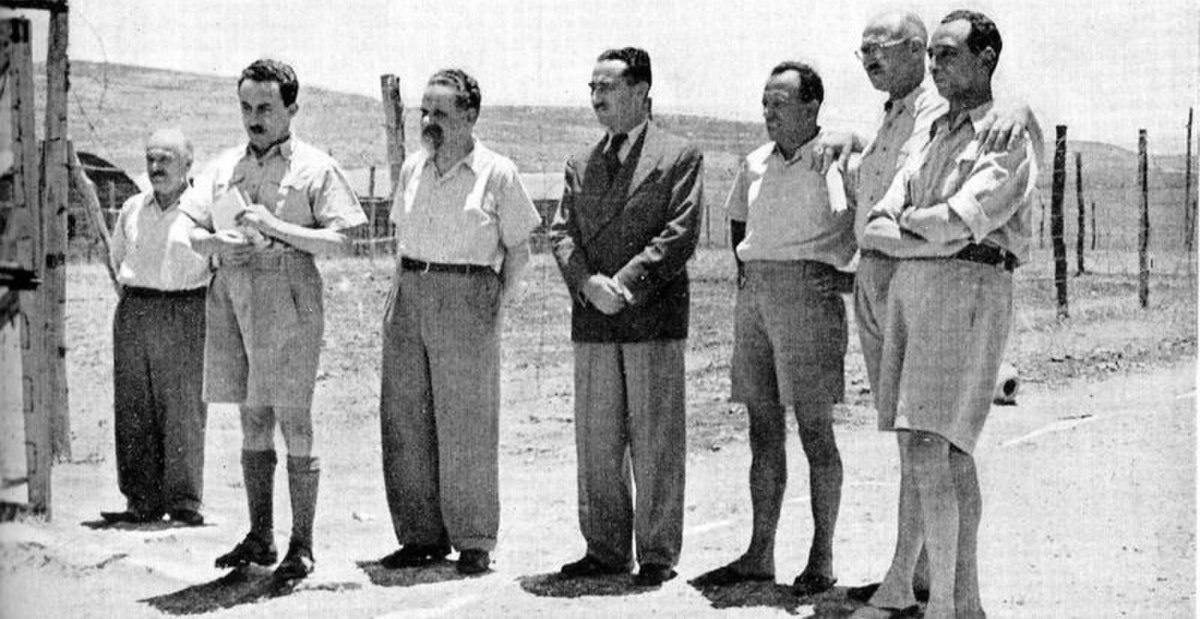
Jewish insurgency in Mandatory Palestine
PalestineThe British Empire was severely weakened by the war. In the Middle East, the war had made Britain conscious of its dependence on Arab oil. British firms controlled Iraqi oil and Britain ruled Kuwait, Bahrain and the Emirates. Shortly after VE Day, the Labour Party won the general election in Britain. Although Labour Party conferences had for years called for the establishment of a Jewish state in Palestine, the Labour government now decided to maintain the 1939 White Paper policies.[171]
Illegal migration (Aliyah Bet) became the main form of Jewish entry into Palestine. Across Europe Bricha ("flight"), an organization of former partisans and ghetto fighters, smuggled Holocaust survivors from Eastern Europe to Mediterranean ports, where small boats tried to breach the British blockade of Palestine. Meanwhile, Jews from Arab countries began moving into Palestine overland. Despite British efforts to curb immigration, during the 14 years of the Aliyah Bet, over 110,000 Jews entered Palestine. By the end of World War II, the Jewish population of Palestine had increased to 33% of the total population.[172]
In an effort to win independence, Zionists now waged a guerrilla war against the British. The main underground Jewish militia, the Haganah, formed an alliance called the Jewish Resistance Movement with the Etzel and Stern Gang to fight the British. In June 1946, following instances of Jewish sabotage, such as in the Night of the Bridges, the British launched Operation Agatha, arresting 2,700 Jews, including the leadership of the Jewish Agency, whose headquarters were raided. Those arrested were held without trial.
On 4 July 1946 a massive pogrom in Poland led to a wave of Holocaust survivors fleeing Europe for Palestine. Three weeks later, Irgun bombed the British Military Headquarters of the King David Hotel in Jerusalem, killing 91 people. In the days following the bombing, Tel Aviv was placed under curfew and over 120,000 Jews, nearly 20% of the Jewish population of Palestine, were questioned by the police. The alliance between Haganah and Etzel was dissolved after the King David bombings. Between 1945 and 1948, 100,000–120,000 Jews left Poland. Their departure was largely organized by Zionist activists in Poland under the umbrella of the semi-clandestine organization Berihah ("Flight").[173]
